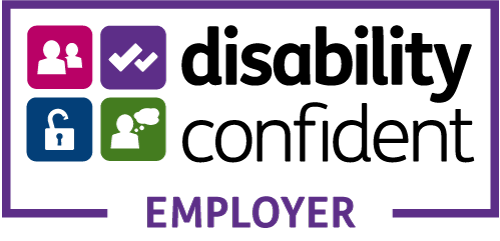As part of our focus in the lead up to Disability Awareness Day on 12 September 2021, we are looking at recent cases and issues relating to disability discrimination.
This week my colleague, Emma Rae, has written an article about Mr D Barrow v Kellog Brown & Root (UK) Ltd, which resulted in the Employment Tribunal awarding the second largest disability discrimination payment in history.
In this first week of our disability awareness focus, I have considered whether employers can avoid making reasonable adjustments themselves by relying on someone else, such as friends, family or advice centres, to help a disabled employee or prospective employee. To answer this question we will look at Mallon v AECOM Ltd (2021), which was decided earlier this year by the Employment Appeal Tribunal.
REASONABLE ADJUSTMENTS
Under section 20 of the Equality Act 2010, there is a duty on employers to make reasonable adjustments to their premises or working practices to help disabled job applicants and employees. For example, an employer might provide a special keyboard for an employee with arthritis or allow a job applicant with dyslexia extra time to complete a written test.
MALLON V AECOM
The case of Mallon v AECOM illustrates the issues that arise when an employer assumes that someone else will assist the disabled individual and essentially make the reasonable adjustment on behalf of the employer.
FACTS
The claimant, Mr Mallon, had dyspraxia - a common developmental co-ordination disorder that affects movement and coordination. Mr Mallon argued that a reasonable adjustment should have been made to AECOM's job application process to allow him to submit an application orally rather than online, as his dyspraxia made it difficult to complete online applications. Mr Mallon made a disability discrimination claim against AECOM, on the basis that AECOM had failed to make this reasonable adjustment.
Mr Mallon had brought similar claims in the past against different companies, three of which had been dismissed by Employment Tribunals based on their merits. In one of these claims, against John Lee Recruitment, the Tribunal had concluded that Mr Mallon could have received help from someone else, such as a job centre, to complete the job application.
In his claim against AECOM, Mr Mallon explained to the Tribunal that he should not have to ask his wife for help with completing an online application as she was not his carer. He also said that he was too embarrassed to ask friends for help as they did not know about his dyspraxia and that it would have taken too much time to go to an advice centre for assistance.
The Tribunal was also told that Mr Mallon had worked for AECOM before and, with assistance from his wife, he had previously completed an online form relating to a job offer from AECOM. The Employment Tribunal also took account of the fact that the claimant had completed several online forms as part of the claim process.
The Employment Tribunal decided to strike out (i.e. dismiss without a full hearing) the claim against AECOM. It concluded that Mr Mallon would not be able to establish that the requirement for an online application (which was deemed to be a provision, criterion or practice) placed him at a substantial disadvantage in comparison with people who were not disabled.
OUTCOME
Mr Mallon appealed the decision to strike-out his claim and the case was remitted to the Employment Appeal Tribunal. The Employment Appeal Tribunal decided that it was not appropriate for the Tribunal to have struck out Mr Mallon's disability discrimination claim, as it could not be said that the claim had no reasonable prospect of success.
The Appeal Tribunal also noted that if an employer would otherwise be under a duty to make a reasonable adjustment, care should be taken before it is assumed that the adjustment is not reasonably required just because someone else can make the adjustment. Further it found that:
'Friends and family may be prepared to help a disabled person, but they should not be expected to step in and make a reasonable adjustment for an employer, or potential employer, to save it from the trouble of having to make the adjustment itself.'
In addition, it should not be assumed that a provision, criterion or practice does not place a disabled individual at a disadvantage, just because someone other than the employer or potential employer can provide the required assistance.
The Appeal Tribunal concluded that if an individual who was not disabled could complete the job application form without assistance, then the requirement for assistance with completing the form could in itself be a disadvantage to a disabled person. It was judged that similar cases would turn on their own facts, but that most people would wish to complete a job application themselves without having to rely on family or friends.
LESSONS TO BE LEARNED FOR EMPLOYERS
- The duty to make reasonable adjustments in relation to job applications remains on the employer and there is a need to be flexible when it comes to how disabled applicants complete job applications.
- Consider and ask disabled job applicants what, if any, assistance or adjustments they may need to complete the application process.
- Don't expect that a disabled employee or prospective employee will receive assistance from family, friends or an external service such as a job centre or advice centre.
If you need any support or advice in this area, please contact:
Rhona Wallace at Rhona.Wallace@addleshawgoddard.com




